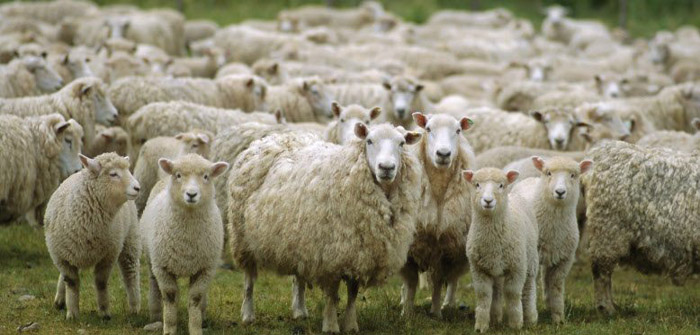Farmers should be worming their stock based on actual risk rather than historic treatment data after Parasite Watch revealed a significant variation in worm patterns over the last four years.
Data from Parasite Watch showed last year was a consistently high year for stomach worms with average egg counts hovering at or above the 250 eggs per gram (epg) treatment threshold from March right through into the autumn.
This is in comparison to 2017 national data which didn’t see any of the monitored flocks showing counts in lambs above the treatment threshold and the highest count only reaching 150 epg in the July.
However, on a regional level the parasite situation last year varied drastically across the country.
The main regional findings from 2019 were:
- South West – There were three main stomach worm spikes in the spring (342epg), late summer (470epg) and autumn (292epg). The main Nematodirus spike was in October (175epg);
- South East – Stomach worms were high from March through to July with a peak of 711epg in September. There were few cases of Nematodirus;
- North West – Although stomach worm cases were rising throughout the spring, they didn’t hit the 250epg threshold until September when they rose to 408epg. Nematodirus peaked in May (241epg).
- North East – Stomach worms were consistently high last year with counts above the treatment threshold from March right through until the autumn and reaching a high of 505 epg in October. Nematodirus cases were low with a slight rise in cases in June, but not reaching the treatment threshold.
Veterinary consultant Fiona Lovatt, from Flock Health, said: “The data clearly shows no two years are the same, which is why it is important you don’t base treatments simply on what you have done historically.
“Last year egg counts were consistently higher in most places due in part to the warm and wet weather. However, it did vary regionally.”
Ms Lovatt added: “Routinely treating lambs is usually both unnecessary and uneconomical as well as adding to the pressure for wormer resistance to develop.”
She said treatment decisions should be based on:
- Faecal egg count tests taken at regular intervals from spring until early autumn. Samples should be taken from about 10% of the individual group being tested and should be representative (i.e. do not target individuals with dirty back-ends);
- Records of high-risk fields and situations. By keeping a record of all FEC tests, farmers can map high-risk areas of the farm and times of the year. This can help inform management strategies to reduce worm burdens or, when pasture contamination is high, to consider grazing animals elsewhere, for example;
- Monitoring lamb growth rates provides invaluable additional information;
- All sheep farmers should be engaged with a proactive vet who is interested in their sheep;
- Worm egg counts and fluke counts are dependent on the weather though the mechanisms are very different between them. Be alert to the weather and follow forecasting services such as the Zoetis Parasite Watch Scheme, which provides real time information on parasite risks.
To find out about the benefits of Parasite Watch and to sign up to receive data alerts when the service resumes in March, click HERE.


